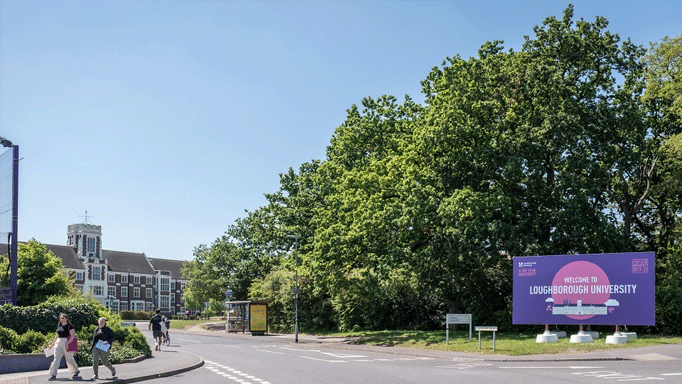The 2024 QS World University Rankings: Sustainability provides students with a unique insight into which institutions are demonstrating a commitment to a more sustainable existence. It assesses universities across three key metrics: Environmental Impact, Social Impact and Governance.
Loughborough has climbed almost 200 places from its 2023 ranking, highlighting a University-wide commitment to put sustainability and social change at the heart of all its activities.
Across the campus research is taking place to help tackle global climate challenges and improve the lives of those most in need.
Loughborough’s multi-million-pound Centre for Sustainable Transitions: Energy, Environment and Resilience (STEER) is helping support vulnerable populations in the Global South to shape and benefit from the transition to sustainable energy. One of the Centre’s core objectives is to work with partners across the world, from decision-makers to energy-poor communities, to make the United Nations’ Sustainable Development Goal (SDG) 7 a reality.
Academics from Engineering have developed Aftrak, an accessible, economic solution to energy access in sub-Saharan Africa. This deploys green solar microgrids in communities, allowing energy access for all, alongside solar micro tractors that help farmers significantly increase crop yields and revenue. The initiative is a finalist in the global Milken-Motsepe Prize in Green Energy.
And the University’s Centre for Research in Social Policy (CRSP) plays a crucial part in influencing national policy around poverty, living standards and income adequacy. One of its biggest roles is the research and analysis of A Minimum Income Standard (MIS) for the UK. Funded by the Joseph Rowntree Foundation, it is the leading standard of its kind and is used to set the country’s Living Wage. MIS is now being replicated in other countries seeking to establish benchmarks for acceptable household income levels that are rooted in social consensus.
To ensure sustainability is at the core of University operations, Loughborough has set an ambitious goal to be net zero by 2035 and has already made great strides in its efforts to reduce the carbon footprint of its activities. In May it opened its first Passivhaus development, widely regarded as one of the most challenging energy efficiency and comfort standards in the world.
Speaking about Loughborough’s success in the QS rankings, Vice-Chancellor and President, Professor Nick Jennings said: “Our latest position in this global ranking is testament to the work that many colleagues across the University are undertaking to bring about environmental and societal change.
“The University has made clear its commitment to sustainability with its new strategy, Creating Better Futures. Together. This places climate change and the move to net zero at the heart of our activities, as well as making the creation of vibrant and inclusive communities that actively address inequality and celebrate diversity central to our endeavours.
“We are determined to keep pushing forward to ensure our research makes a real difference in tackling the challenges the world faces, and in limiting the environmental impact of our operations.”
Read the full QS World University Rankings: Sustainability 2024.
